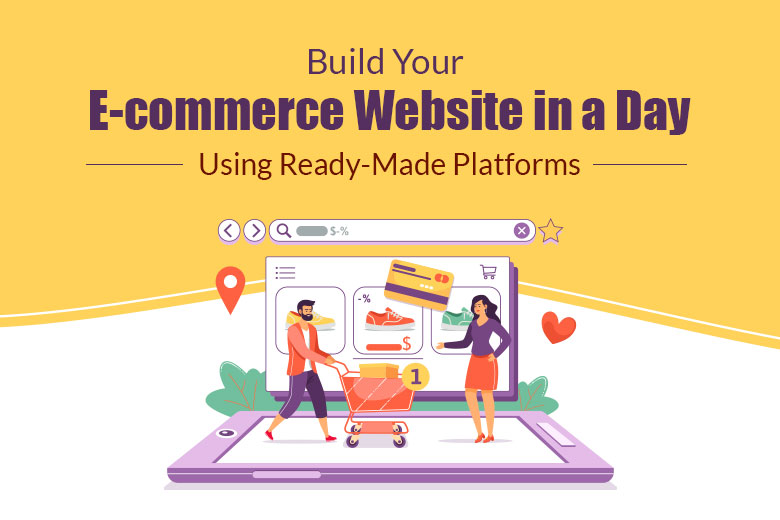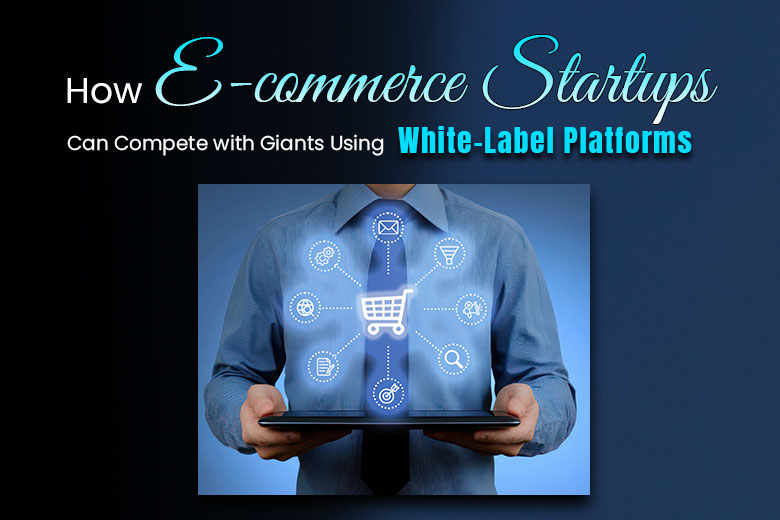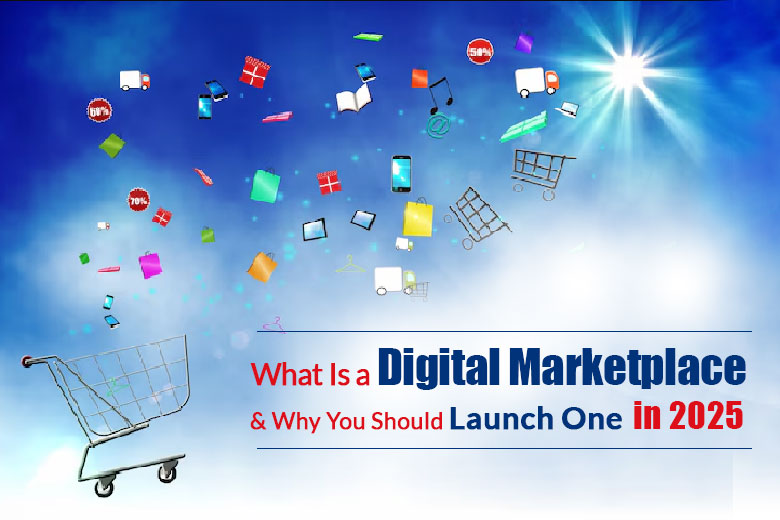Advantages of E-commerce Over Traditional Commerce
- April 6, 2025
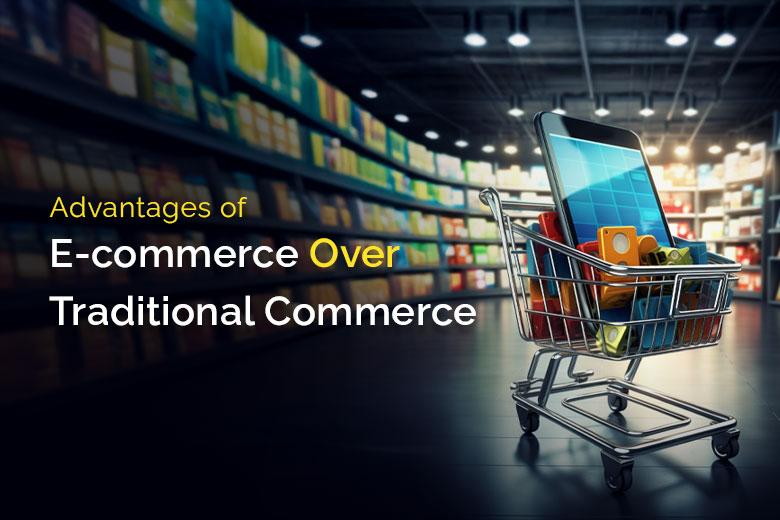
Running a business today is very different from what it was a decade ago. The internet has changed the way people shop, making e-commerce the go-to choose for both buyers and sellers. If you are a small or mid-level business owner considering taking your business online, you might be wondering—what makes e-commerce a better option than traditional commerce?
With tools like easy-to-use ecommerce website builders, setting up an online store has never been easier. In this blog will explore the key advantages of e-commerce over traditional commerce and why business owners should consider making the transition.
Lower Operational Costs
One of the biggest advantages of e-commerce is the significant reduction in operational costs. Traditional commerce requires a physical location, inventory storage, and in-store staff, all of which contribute to high overhead expenses. On the other hand, e-commerce eliminates the need for a physical storefront, reducing costs related to rent, utilities, and in-person staffing.
With the help of an ecommerce website builder, business owners can create and manage their stores at a fraction of the cost of a physical store, allowing them to allocate resources more efficiently.
Wider Audience and Broad Market Reach
A physical store is limited by its geographical location, but an e-commerce store has no such constraints. With an online store, businesses can reach customers across different cities, states, or even countries.
Through ecommerce website development, businesses can integrate advanced marketing tools such as search engine optimization (SEO), social media marketing, and pay-per-click advertising to target a broader audience. This expanded reach provides a massive growth opportunity for small and mid-level businesses looking to scale.
24/7 Availability and Convenience
Unlike traditional stores that have fixed hours of operation, e-commerce stores are available 24/7, providing customers with the convenience to shop anytime. This flexibility increases sales potential and customer satisfaction.
For example, a customer who works long hours may not have time to visit a physical store during the day, but with an e-commerce store, they can make purchases at their convenience.
Better Customer Insights and Data
E-commerce provides business owners with valuable data-driven insights about their customers’ shopping behaviours, preferences, and purchase history. Tools like Google Analytics, heat maps allow businesses to understand what their customers want and optimize their offerings accordingly.
Traditional commerce, on the other hand, relies mostly on manual observation and cash register reports, which are not as efficient or accurate in capturing customer preferences.
Easier Inventory Management
Inventory management in a traditional store can be time-consuming and prone to errors. E-commerce platforms come with automated inventory tracking systems that help businesses keep track of stock levels in real-time.
Additionally, businesses can integrate inventory management tools like ecommerce marketplace development solutions and third-party warehouse management systems to streamline order fulfilment and reduce errors.
Personalized Shopping Experience
One major advantage of e-commerce over traditional commerce is the ability to offer personalized shopping experiences. With product recommendations, customized email marketing, and retargeting strategies, businesses can engage customers more effectively.
For example, an online store can suggest products based on a customer’s browsing history, while a physical store relies on in-person sales representatives, which may not always be as effective.
Scalability and Growth Potential
Scaling a traditional store requires additional locations, staff, and inventory, which can be costly and complex. E-commerce, on the other hand, allows businesses to scale quickly with minimal investment.
By leveraging ecommerce website development, businesses can expand their product offerings, integrate with global shipping services, and optimize logistics without the need for physical expansion.
Cost-Effective Marketing
Marketing for traditional commerce involves print ads, billboards, and in-store promotions, which can be expensive. E-commerce, however, allows for cost-effective digital marketing strategies, including email campaigns, social media ads, content marketing, and influencer collaborations.
Through SEO and paid advertising, businesses can drive targeted traffic to their online store, increasing the likelihood of conversions at a much lower cost than traditional marketing methods.
Faster and More Efficient Transactions
In a physical store, customers often may wait in line to make purchases, leading to lost sales due to long wait times. E-commerce eliminates this hassle by offering multiple payment options, including credit/debit cards, digital wallets, and buy-now-pay-later services.
Additionally, integrating Stripe, PayPal, or Razorpay into an e-commerce store ensures seamless transactions, improving customer satisfaction and increasing sales.
The shift from traditional commerce to e-commerce is more than just a trend—it’s a game changer for businesses of all sizes. Whether you’re a small business owner or looking to scale your mid-sized enterprise, embracing ecommerce marketplace development and leveraging the power of ecommerce website development can unlock new growth opportunities and revenue streams.
By choosing the right ecommerce website builder, you can establish a strong digital presence, reach a global audience, and optimize your business for long-term success. With lower operational costs, greater market reach, and advanced customer engagement tools, e-commerce is the future of retail.
Now is the perfect time to take your business online and maximize its potential. If you’re ready to build a thriving e-commerce store, contact us today, and let’s turn your vision into reality!
You May Also Read
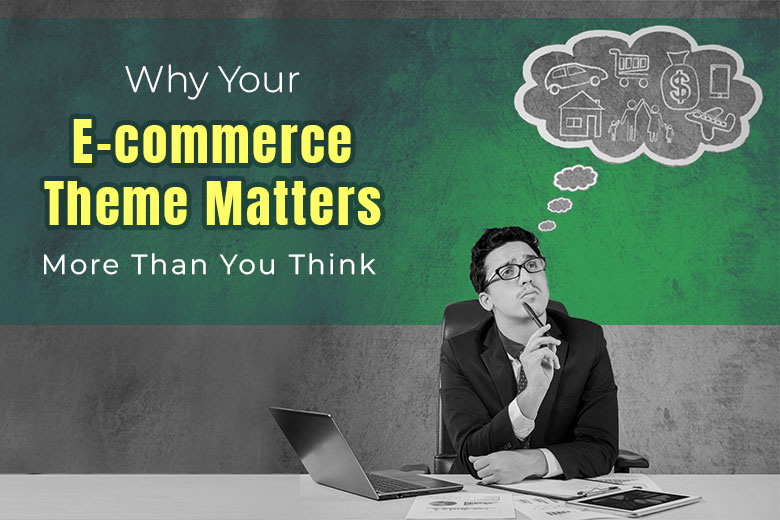
Why Your E-commerce Theme Matters More Than You Think


